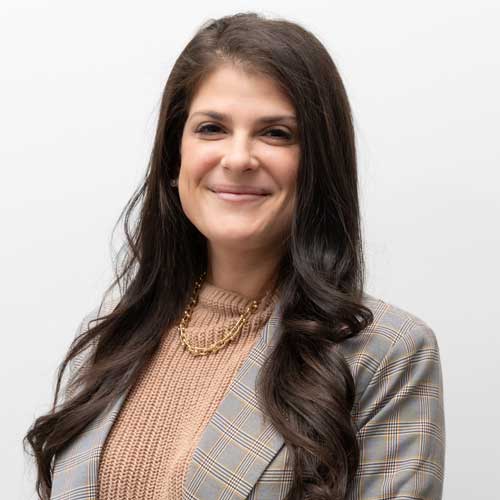When used as intended, Xanax can offer much-needed relief, calming those racing thoughts and overwhelming worries. But it has a dark side, too, a potential for addiction and misuse. Xanax has developed quite a reputation since its inception, but it is not an entirely good one. In time, people may find themselves needing help from a Xanax drug rehab in MA.
Xanax, the brand name for alprazolam, is a medication that falls into a group called benzodiazepines. Doctors often prescribe it for anxiety or panic disorders, but it’s also sometimes given to people struggling with short-term insomnia.
This powerful drug can easily trap people in a cycle of dependence, messing with their mental and physical health in serious ways. It’s crucial to know the risks and side effects involved and to understand that while Xanax might be the right solution for some, it doesn’t come without strings attached.
The scary truth is that Xanax addiction is a genuine problem, but the good news is there are ways to break free. Berkshire Mountain Health specializes in Xanax drug rehab in MA. We offer support and guidance to individuals tangled up with this and many other substances, helping them regain control of their lives.
Understanding the Difference: Xanax Dependence vs. Xanax Addiction
It’s easy to confuse the terms “Xanax dependence” and “Xanax addiction,” but there’s an important distinction you need to understand. Xanax dependence happens when your body gets used to having the drug in its system.
Even if you’ve been following your doctor’s instructions perfectly, your body can become reliant on Xanax to feel normal. Abruptly stopping Xanax can lead to a whole range of uncomfortable withdrawal symptoms—such as tremors, irritability, sleeplessness, and sometimes even seizures in more serious situations.[1]
Xanax addiction is a different beast altogether. It’s that overwhelming compulsion to use the drug, even when it’s clearly messing up your relationships, your job, or your overall well-being. People addicted to Xanax may start taking doses way higher than prescribed or go to questionable ways to get their hands on more.
Recognizing the Signs of Xanax Addiction
Xanax addiction doesn’t always let the user know they have a problem right away. It often starts by altering their behaviors and priorities over periods of time. Learning to recognize the warning signs is crucial, not only for the person struggling but also for concerned loved ones.
One of the most noticeable changes that often accompanies Xanax addiction is a shift in behavior. Responsibilities that were once a priority begin to fall by the wayside. Work deadlines get missed, household chores are neglected, and relationships start to strain under the weight of broken promises.
The person addicted to Xanax might lose interest in activities they used to love, withdrawing from hobbies, sports, or social gatherings. Their focus narrows, too, consumed by thoughts of obtaining and using more Xanax.
Physical signs can also manifest. Slurred speech and a lack of coordination become apparent, resembling someone with too much to drink. They might struggle with memory or experience periods of confusion.
These signs, however, are not always so obvious. People struggling with addiction can become incredibly proficient at hiding their problems. They might downplay their symptoms or offer elaborate excuses to explain their behavior. But deep down, those closest to them often sense something is wrong.
Here are some more red flags to watch for:
- Frequent Doctor Shopping: Visiting multiple doctors to obtain additional Xanax prescriptions.
- Unexplained Financial Difficulties: Money is going missing, and there is an inability to account for how funds are spent.
- Changes in Social Circles: Hanging around people who might also be abusing drugs or those who are sources for obtaining Xanax.
- Secretive Behavior and Defensiveness: Becoming increasingly guarded about their actions or lashing out when questioned.
It can be excruciating and confusing to witness someone you care about spiral into addiction. If you are in this situation, know that you are not alone. Specialized treatment centers in Massachusetts offer support and resources not only for those struggling with Xanax addiction but also for their families and loved ones. Getting professional help is the most critical step toward breaking the cycle.
The Road to Recovery: Xanax Drug Rehab in MA
Quitting Xanax cold turkey is dangerous. Because your body becomes dependent on the drug, abruptly stopping can trigger severe withdrawal symptoms—sometimes even life-threatening ones. That’s why a medically supervised detox is usually the safest and most effective starting point on your recovery journey.
The type of treatment program that’s right for you depends on the severity of the addiction, along with other individual factors. Programs within Massachusetts typically fall into a couple of categories:
Detox Centers
A detox center provides 24/7 monitoring and support as your body goes through the process of withdrawal. Doctors and nurses may use medications to ease the discomfort of withdrawal symptoms and ensure your safety throughout the detox process.
Outpatient Programs
Offering greater flexibility, outpatient programs allow you to continue living at home while attending treatment sessions during the day or evening. These programs may work well for people with milder addictions and a strong support system at home.
Choosing the right treatment center is a crucial decision. It is essential to find a facility whose philosophy aligns with your needs and personality. Factors like the program’s approach, the experience of their staff, and the range of therapies offered all play a role in long-term success.
Your Journey in Xanax Drug Rehab in MA
Most rehab programs take a comprehensive, multi-phase approach to treating addiction. While the specific components might vary between facilities, here’s a general outline:
Detoxification at A Xanax Drug Rehab in MA
This is often the first stage, where your body rids itself of Xanax under medical supervision. The length of this process will depend on the severity of your addiction and other health considerations.
Therapy A Xanax Drug Rehab in MA
Addiction is driven by more than just physical dependence. With therapy, you will have the essential tools and resources needed for:
- Understanding the underlying emotional triggers
- Learning healthy coping mechanisms
- Developing strategies to prevent relapse
This might include individual therapy sessions, group therapy, and specialized therapies like cognitive-behavioral therapy (CBT).[2]
Aftercare Planning
The journey doesn’t end the moment you walk out of rehab. A solid aftercare plan is just as important as what happens during rehab. Support groups, continued therapy, and sober living arrangements can help you maintain your hard-won recovery.
Many people struggling with Xanax addiction also have co-occurring disorders like depression, anxiety, or PTSD. Finding a treatment center that specializes in addressing these dual diagnoses is crucial.
Berkshire Mountain Health understands the critical connection between addiction and mental health. Our dual-diagnosis addiction treatment programs acknowledge that simply treating the addiction isn’t enough.
We have experts who work with you to manage underlying mental health conditions, providing the tools and strategies you need for comprehensive, long-lasting healing. With the proper support and personalized care, maintaining your recovery and building a healthier, more fulfilling life is possible.
Visit Berkshire Mountain Health for Xanax Addiction Treatment in Massachusetts
Xanax addiction is a serious condition, but it is treatable. Supervised detox, personalized therapy, and ongoing support are critical components of building a sustainable recovery. If you or someone you love is struggling, know you don’t have to walk this path alone.
Berkshire Mountain Health offers a compassionate and confidential space to assess your situation and discuss treatment options. Reach out today and begin the journey back to a healthier, addiction-free life.
Sources:
[1] https://pubmed.ncbi.nlm.nih.gov/7841856/
[2] https://my.clevelandclinic.org/health/treatments/21208-cognitive-behavioral-therapy-cbt

Alexis earned both a B.S. in Psychology and a B.S. in Family and Child Sciences from Florida State University and an M.A. in Marriage and Family Therapy from the University of San Diego. She holds licenses in Marriage and Family Therapy in Florida, Connecticut, and Massachusetts and is also a member of the American Association for Marriage and Family Therapy (AAMFT).
Alexis works with families, couples, children, and groups and also has a sub-specialty in addiction and recovery. She utilizes an integrated, systemic approach to counseling; empowering people to define what is not working for them in their lives and to discover the possibilities for making life work. In doing this, clients are guided towards identifying their strengths, accessing their resources, tapping into their potential for success, and taking action toward achieving their desired goals.
Alexis also has extensive experience in the administration of behavioral health organizations. She has developed, built, and supervised several facilities encompassing all levels of care while leading them through state licensing and The Joint Commission accreditation process.



